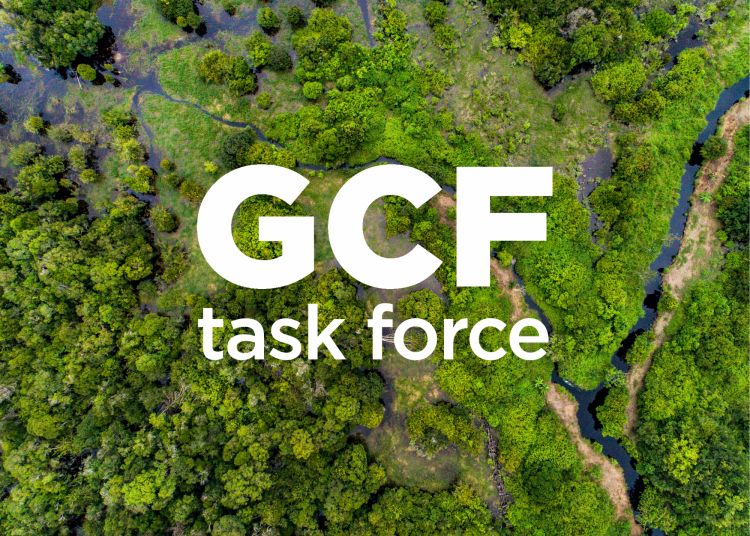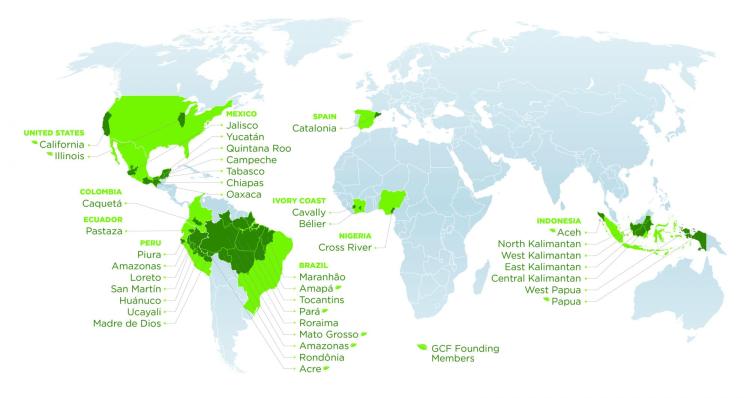Climate Change -- Governors' Climate & Forests Task Force

Established in 2008, the Governors’ Climate & Forests Task Force is now the world’s largest subnational collaboration of states and provinces working to reduce deforestation and advance low-emissions development. GCF Task Force membership includes 38 states and provinces from Brazil, Indonesia, Columbia, Ivory Coast, Mexico, Nigeria, Peru, Spain, and the United States seeking to advance jurisdictional programs for reducing emissions from deforestation and land use and link these activities with emerging greenhouse gas (GHG) compliance regimes and other pay-for-performance opportunities.
GCF Task Force Member States & Provinces contain over one-third of the world’s tropical forests—including all of the legal Brazilian Amazon, 85 percent of the Peruvian Amazon, and more than 60 percent of Indonesia’s tropical forests. GCF Task Force Members are leading the way in building robust jurisdictional programs to protect forests, reduce emissions contributing to climate change, and simultaneously enhance rural livelihoods. California, a GCF Task Force Founding Member State, is the only jurisdiction in the world considering provisions to recognize emissions reductions from jurisdictional REDD+ programs as part of its mandatory state-wide cap-and-trade program. Large clusters of member states and provinces in critical tropical forested countries—including Brazil, Indonesia, Mexico, and Peru—enhance the efficacy of the GCF Task Force Network in protecting vital forests. Each of these four countries include their own GCF Task Force Country Coordinator; Coordinators support ongoing efforts across their respective countries by sharing experiences, identifying best practices, developing common positions, and collaborating on jurisdictional strategies.

The GCF Task Force focuses on all aspects of the efforts to reduce emissions from deforestation and establish lasting frameworks for low-emissions development by sharing experiences and lessons across leading states and provinces, synchronizing efforts across these jurisdictions to develop policies and programs that provide realistic pathways to forest-maintaining rural development, supporting processes for multi-stakeholder participation and engagement, and securing financing for jurisdictional programs from a range of sources—including pay-for-performance public finance, carbon markets, and ongoing efforts to de-carbonize food and commodity supply chains.
While the work of the GCF Task Force is conducted directly within member states and provinces, and in international climate policy forums, the Secretariat is based at the University of Colorado and housed under the School of Law. Secretariat staff work directly with Coordinators, delegates, governors, and partners on-the-ground in member states and provinces.
The GCF Task Force receives support from the Norwegian Development Agency, Norway’s International Climate and Forest Initiative (NICFI), the United Nations Development Program, the Rockefeller Brothers Fund, the Moore Foundation, the Laboratory for Energy and Environmental Policy (LEEP), and The Climate Group. Key partners include the Earth Innovation Institute, Mecanismos de Desarrollo Alternos, Pronatura sur, and many others.
Learn more at www.gcftaskforce.org.


